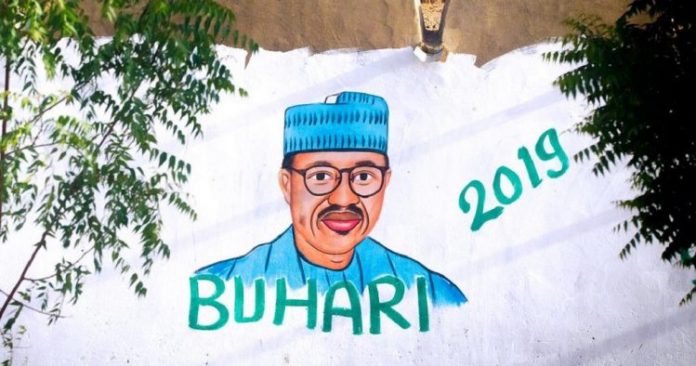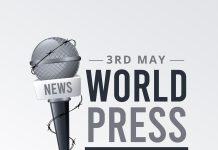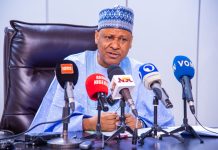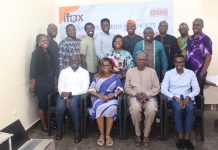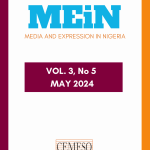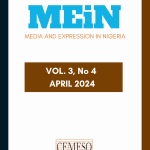President Muhammadu Buhari during his Independence Day speech vowed that his administration would take a “firm and decisive action” against promoters of hate speech and other divisive materials on the Internet.
“Our attention is increasingly being focused on cyber-crimes and the abuse of technology through hate speech and other divisive material being propagated on social media,” the president said in the televised address Tuesday morning. “Whilst we uphold the Constitutional rights of our people to freedom of expression and association, where the purported exercise of these rights infringes on the rights of other citizens or threatens to undermine our National Security, we will take firm and decisive action.”
Nigerians largely condemned cyber-crimes and hailed recent arrests of online fraudsters of Nigerian origin by the United States authorities. But the president’s overall tone on social media speech appeared a morale booster for security agencies in their brutal and sustained assault on citizens accused of stretching the limits of acceptable speech. The repressive tactics have met outrage and condemnation from rights groups around the world.
The police and State Security Service (SSS), a domestic intelligence agency despised by Nigerians for its old-fashioned regime protection blueprint, have made regular arrests of journalists, bloggers and social media commentators since Mr Buhari assumed office in 2015.
The violence has worsened in recent weeks, with citizens being increasingly incarcerated under a broadening, government-defined ‘hate speech’ declaration.
A journalist who wrote an article critical of a state governor was charged with treason last month. Two weeks ago, another female reporter spent two nights in jail for taking pictures in public — during which she was reportedly assaulted.
On Thursday, a veteran journalist and social critic, Chido Onumah, was arrested at the airport in Abuja and detained for several hours by the SSS over an inscription on his T-shirt. The agency arrested him apparently without knowing that the inscription ‘We Are All Biafrans’ was actually a title of a book Mr. Onumah wrote and publicly launched three years ago.
As part of the growing arbitrariness under Mr Buhari, a prominent Nigerian media figure, Omoyele Sowore, has been locked up for nearly two months for calling on Nigerians to take to the streets to protest growing hardship under a semi-coordinated #RevolutionNow campaign.
The SSS said Mr Sowore’s #RevolutionNow call could spark an uprising that could end in Mr Buhari’s removal from office. Still, the agency was unable to clarify if any credible intelligence existed that corroborated its allegation against the Sahara Reporters’ publisher.
When Mr Sowore was charged to court, the government listed ‘insult’ that defamed Mr Buhari as one of the three fundamental grounds for his continued incarceration.
Mr Sowore was granted bail last week by the Federal High Court in Abuja, but the government refused to comply, even after the judge threatened a contempt proceeding against the head of SSS. Instead, he was re-arraigned before another judge on duplicated charges of treason, an allegation the activist denied.
The decision to ignore a valid court order and keep Mr Sowore in custody was in line with Mr Buhari’s preference for national security over the Nigerian Constitution. Federal agencies under him have continued to discard unfavourable court orders as a result.
Amnesty International, the Committee to Protect Journalists and a host of rights advocates have criticised the tactics and warned that Nigeria’s democracy was being increasingly jeopardised by government’s intolerance of free speech.
Rights advocates said they recognised the threat of hate speech and unfounded claims online, but held that such acts should not justify wanton attacks on citizens’ rights by Nigerian authorities.
Wole Soyinka also joined critics in condemning growing proliferation of fake news and abuse of the Internet, but strongly rejected the approach by Mr Buhari’s government. Last month, the Nobel laureate lampooned Mr Buhari for exhibiting traits of paranoia amidst isolation of his government by Nigerians.
But the criticism did not appear to have had any impact on Mr Buhari or top administration officials, as they continued to implement arbitrary clampdown on citizens without clarifying ambiguities around what constitutes a hate speech.
“I reiterate my call for all to exercise restraint, tolerance and mutual respect in airing their grievances and frustrations,” the president said in his speech on Tuesday morning. “The path of hatred and distrust only leads to hostility and destruction. I believe that the vast majority of Nigerians would rather tread the path of peace and prosperity, as we continue to uphold and cherish our unity.”


